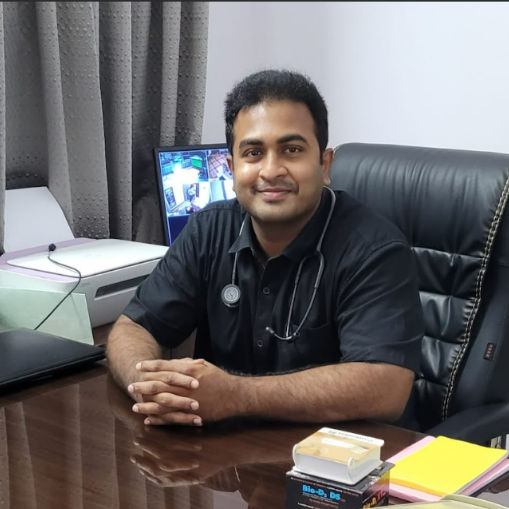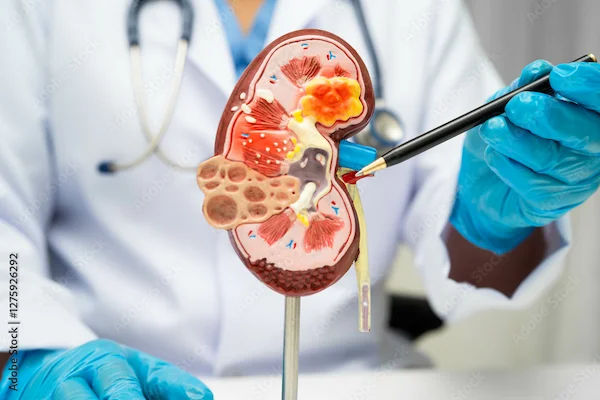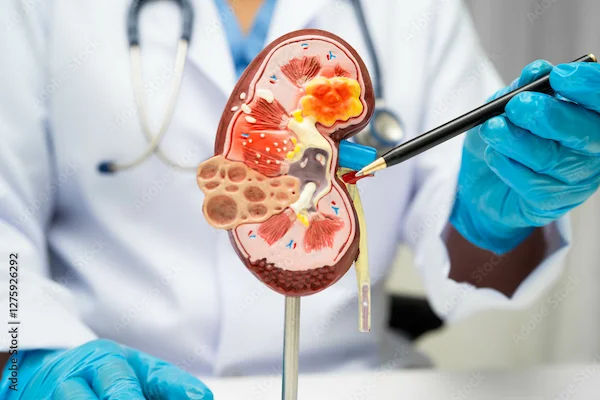Bladder Problems After Kidney Transplant
Explore common bladder problems after kidney transplant, including UTIs, frequent urination, and incontinence. Learn what to expect and when to seek medical advice for new kidney health.

Written by
Last updated on 17th Jul, 2025
_7.webp)
Introduction
Undergoing a kidney transplant is a lifechanging event that brings hope and a new lease on life. However, like any major surgery, it can come with some challenges during recovery—one of them being bladder problems. If you or a loved one has had a kidney transplant and are experiencing bladder-related issues, know that you're not alone. Many patients face similar concerns, and most of these problems can be managed effectively with the right care.
In this article, we’ll discuss common bladder problems after a kidney transplant, their causes, symptoms, and ways to manage them for a smoother recovery.
Common Bladder Problems After Kidney Transplant
After a kidney transplant, your bladder may take some time to adjust to its new role. Some common issues include:
1. Urinary Retention (Difficulty Emptying the Bladder)
You may feel like your bladder isn’t fully emptying.
This can happen due to weakened bladder muscles or nerve damage from surgery.
2. Frequent Urination or Urgency
You might feel the need to urinate more often than usual.
This could be due to irritation from the catheter used during surgery or changes in bladder function.
3. Urinary Tract Infections (UTIs)
Transplant patients are at a higher risk of UTIs due to weakened immunity from immunosuppressant medications.
Symptoms include burning sensation, cloudy urine, or fever.
4. Leakage (Urinary Incontinence)
Some patients experience involuntary urine leakage, especially when coughing or sneezing.
This can occur due to weakened pelvic muscles or nerve damage.
5. Bladder Spasms
Sudden, painful contractions of the bladder muscles can cause discomfort and urgency.
Consult Top Nephrologists
Why Do These Problems Happen?
Several factors contribute to bladder issues after a kidney transplant:
Surgery Effects: The transplant procedure can temporarily affect bladder nerves and muscles.
Catheter Use: A urinary catheter is often placed during surgery, which can irritate the bladder.
Medications: Immunosuppressants (antirejection drugs) increase the risk of infections.
Preexisting Conditions: If you had bladder problems before the transplant (like an overactive bladder), they may persist or worsen.
How to Manage Bladder Problems After Transplant
The good news is that most bladder issues improve with time and proper care. Here are some ways to manage them:
1. Stay Hydrated (But Not Too Much)
Drink enough water to keep urine light yellow, but avoid excessive fluids before bedtime to reduce nighttime urination.
2. Practice Bladder Training
If you have urgency or frequency, try delaying urination by a few minutes each time to train your bladder.
3. Strengthen Pelvic Floor Muscles
Kegel exercises can help improve bladder control.
How to do Kegels: Tighten the muscles you use to stop urinating, hold for 5 seconds, then relax. Repeat 10 times, 3 times a day.
4. Prevent UTIs
Drink plenty of water.
Urinate after intercourse.
Avoid holding urine for too long.
If infections are frequent, your doctor may prescribe low dose antibiotics.
5. Manage Bladder Spasms
Your doctor may prescribe medications to relax the bladder muscles.
Avoiding caffeine and alcohol can also help reduce irritation.
6. Follow Up with Your Doctor
If symptoms persist or worsen, consult your transplant team.
They may recommend tests like a urine analysis, ultrasound, or urodynamic study to check bladder function.
When to Seek Medical Help
While most bladder problems improve with time, contact your doctor if you experience:
Severe pain or burning while urinating.
Blood in urine.
Fever or chills (signs of infection).
Inability to urinate for several hours.
Final Thoughts
Bladder problems after a kidney transplant are common but manageable. With patience, proper hydration, pelvic exercises, and medical guidance, most patients see improvement over time. Remember, your transplant team is there to support you—don’t hesitate to reach out if you have concerns. If you're experiencing persistent bladder issues, consider booking a consultation with a urologist or nephrologist through Apollo 24|7 for expert advice and personalized care. Stay positive, follow your doctor’s advice, and take things one step at a time. Your body has been through a lot, and recovery takes time—but better days are ahead!
Consult Top Nephrologist
Consult Top Nephrologists

Dr. Hareesha Babu K
Nephrologist
25 Years • MBBS, MD (General Medicine), DM (Nephrology),FASN, FRCP(Glasg), FRCP (Edin)
Bangalore
Kidney & Hypertension Care, Bangalore
(125+ Patients)

D. Akshay Zalavadiya
Nephrologist
3 Years • MBBS, MD, DM Nephrology
Ahmedabad
Beacon kidney consult, Ahmedabad

Dr. Siddharth Herur
Nephrologist
4 Years • MBBS, MD General Medicine, DM Nephrology
Kurnool
Medicover hospital and Gurudatta poly clinic, Kurnool

Dr. Anantha Rao
Nephrologist
7 Years • MBBS, DNB (General Medicine), DNB (Nephrology)
Kurnool
Aakash hospital and KIMS hospital, Kurnool

Dr. S Bipin Kumar
Nephrologist
13 Years • MBBS, MD General Medicine, DM, Nephrology
Rajamahendravaram
SG KIDNEY CARE, Rajamahendravaram
Consult Top Nephrologist

Dr. Hareesha Babu K
Nephrologist
25 Years • MBBS, MD (General Medicine), DM (Nephrology),FASN, FRCP(Glasg), FRCP (Edin)
Bangalore
Kidney & Hypertension Care, Bangalore
(125+ Patients)

D. Akshay Zalavadiya
Nephrologist
3 Years • MBBS, MD, DM Nephrology
Ahmedabad
Beacon kidney consult, Ahmedabad

Dr. Siddharth Herur
Nephrologist
4 Years • MBBS, MD General Medicine, DM Nephrology
Kurnool
Medicover hospital and Gurudatta poly clinic, Kurnool

Dr. Anantha Rao
Nephrologist
7 Years • MBBS, DNB (General Medicine), DNB (Nephrology)
Kurnool
Aakash hospital and KIMS hospital, Kurnool

Dr. S Bipin Kumar
Nephrologist
13 Years • MBBS, MD General Medicine, DM, Nephrology
Rajamahendravaram
SG KIDNEY CARE, Rajamahendravaram

_9.webp)
.webp)

_9.webp)